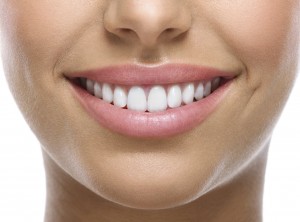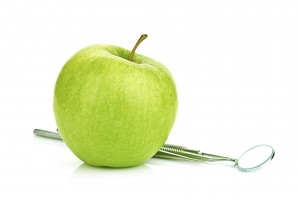 Dental Crowns are dental restorations that are placed over teeth to restore the strength and structure. So how do you know if you need a dental crown? If your tooth is in danger of breaking a dental crown procedure may be the right solution for you. A breaking or damaged tooth indicates that there is a significant amount of decay that causes the tooth to become frail. In order to restore your tooth to its natural strength, a dental crown will be used to improve the longevity and durability of your tooth. Discoloration on the tooth also indicates that you may need a dental crown. This can easily be solved with a dental crown that will not only improve your oral health, but give you a confident and radiant smile.
Dental Crowns are dental restorations that are placed over teeth to restore the strength and structure. So how do you know if you need a dental crown? If your tooth is in danger of breaking a dental crown procedure may be the right solution for you. A breaking or damaged tooth indicates that there is a significant amount of decay that causes the tooth to become frail. In order to restore your tooth to its natural strength, a dental crown will be used to improve the longevity and durability of your tooth. Discoloration on the tooth also indicates that you may need a dental crown. This can easily be solved with a dental crown that will not only improve your oral health, but give you a confident and radiant smile.
Dr. Kirtley can determine whether or not a dental crown is right for you so call today. Avoid living with damaged and discolored teeth because dental crowns may be the solution to your dental predicaments.
Below are some benefits of dental crowns:
-Undergoing a cosmetic dental crown procedure can improve the look of broken or cracked teeth. If you are suffering from a loss of teeth, dental crowns are the solution to replace any missing teeth.
-Dental crowns look extremely natural because the porcelain and composite resin crowns match the exact shade of your natural teeth. With dental crowns, you will not be able to tell the difference from your crowns and natural teeth.
-Dental crowns are stain-resistant. This is because dental crowns are made from porcelain, a material that is not prone to discoloration.
-With durable materials used for your dental crowns, dental crowns can last up to 15 years. With dental crowns, patients can go about their daily routines without constantly worrying about their dental crowns falling out of place.
-Dental crowns are restorative and preventive measures that improve missing or damaged teeth. Dental crowns also drastically decrease the amount of bacteria build-up that can lead to the loss of more teeth.
If you are embarrassed of your missing or damaged teeth? Then dental crowns are the perfect solution to build your confidence!
For more information and to make an appointment call, Dr. Kirtley at 317-841-1111 or visit his website smilesbygeorge.com
Dr. George Kirtley welcomes patients from Spring Hill, Beech Grove and Warren Park

